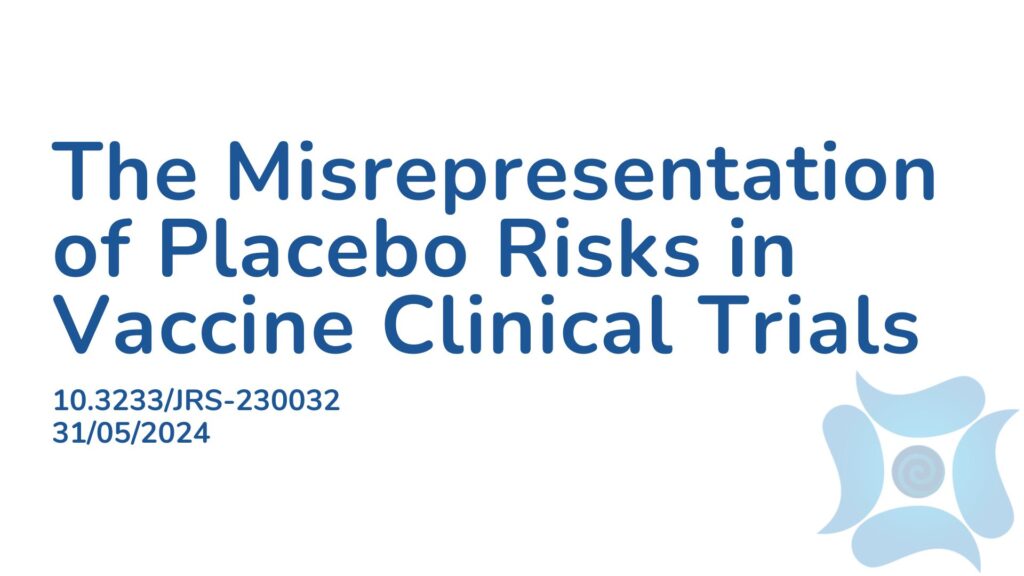Summary:
Ethics guidelines related to clinical trials mandate that researchers fully disclose all potential risks associated with experimental medical products, such as treatments and placebos, to study participants, ensuring their informed consent. These guidelines also emphasize designing clinical research to minimize harm and maximize benefit. This study questioned Merck’s (a technology company that manufactures vaccinations) justification for using an active aluminum-containing “placebo” in clinical trials of the Gardasil HPV vaccine. The authors analyzed the informed consent form and recruitment materials from the Gardasil vaccine trial, conducted interviews with trial participants and their physicians, and reviewed regulatory documents related to Gardasil’s approval process and guidelines for evaluating vaccine adjuvants. Their investigation revealed that Merck provided inaccurate information to trial participants, compromising their ability to provide informed consent. Despite listing safety testing as a main objective of the study, the recruitment documents showed that the study did not focus on safety and asserted that the vaccine’s safety had already been established prior to this trial. Furthermore, informed consent documents inaccurately described the placebo as saline or an inactive substance, when it actually contained Merck’s highly active aluminum adjuvant, which lacked sufficient safety evaluation. Some participants in the adjuvant placebo group reported chronic symptoms. The authors concluded that using an active placebo in Gardasil clinical trials provided no potential benefit, needlessly exposed participants to risks, and violated the study’s ethics. They also explained that routine use of aluminum adjuvants as placebos in vaccine trials is inappropriate as it obscures potential safety issues related to the vaccine.
Abstract:
BACKGROUND: Medical ethics guidelines require of clinical trial investigators and sponsors to inform prospective trial participants of all known and potential risks associated with investigational medical products, and to obtain their free informed consent. These guidelines also require that clinical research be so designed as to minimize harms and maximize benefits.
OBJECTIVE: To examine Merck’s scientific rationale for using a reactogenic aluminum-containing “placebo” in Gardasil HPV vaccine pre-licensure clinical trials.
METHODS: We examined the informed consent form and the recruitment brochure for the FUTURE II Gardasil vaccine trial conducted in Denmark; and we interviewed several FUTURE II trial participants and their treating physicians. We also reviewed regulatory documentation related to Gardasil vaccine approval process and the guidelines on evaluation of adjuvants used in human vaccines. RESULTS: It was found that the vaccine manufacturer Merck made several inaccurate statements to trial participants that compromised their right to informed consent. First, even though the study protocol listed safety testing as one of the study’s primary objectives, the recruitment brochure emphasized that FUTURE II was not a safety study, and that the vaccine had already been proven safe. Second, the advertising material for the trial and the informed consent forms stated that the placebo was saline or an inactive substance, when, in fact, it contained Merck’s proprietary highly reactogenic aluminum adjuvant which does not appear to have been properly evaluated for safety. Several trial participants experienced chronic disabling symptoms, including some randomized to the adjuvant “placebo” group.
CONCLUSION: In our view, the administration of a reactive placebo in Gardasil clinical trials was without any possible benefit, needlessly exposed study subjects to risks, and was therefore a violation of medical ethics. The routine use of aluminum adjuvants as “placebos” in vaccine clinical trials is inappropriate as it hinders the discovery of vaccine-related safety signals.
Article Publication Date: 31/05/2024
DOI: 10.3233/JRS-230032



